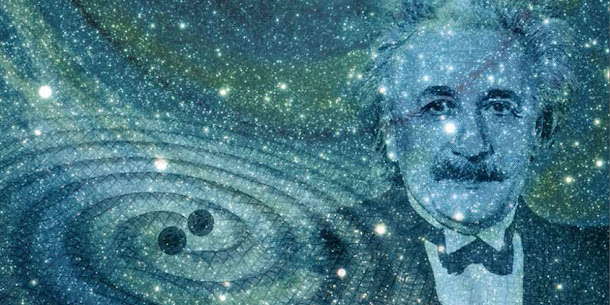Do you think the Moon disappears when we stop looking at it? This question, attributed to Albert Einstein in his famous correspondence discussions with his colleague Niels Bohr , sums up a key idea of genius thought: that the properties of things are objectively defined, whether we measure them or not, which It's called 'local realism'. But in the quantum world , the world of tiny particles, things don't seem to behave with the logic of everyday experience. An extraordinary test called The BIG Bell Test, in which more than 100,000 volunteers from all over the world have participated, has shown in a big way thatEinstein, despite his enormous intuition, was not right on this point.
Updated version of the previous article.
The results, which delve into the oddities of the Universe, appear published this week in the journal "Nature" . And one of the most interesting aspects is that it has not been the machines that have achieved it, but the wonderful human capacity for free will .
On November 30, 2016, the Barcelona Institute of Photonic Sciences (ICFO) invited anyone who might be interested to take on an online video game in which they had to enter zeros and ones randomly. The call was a complete success and far exceeded the number of 30,000 participants that scientists considered necessary for their purposes. The volunteers, known as "Bellsters", generated more than 90 million unpredictable bits that were sent to simultaneous quantum experiments spread over twelve laboratories in Brisbane (Australia), Shanghai, Vienna, Rome, Munich, Zurich, Nice, Barcelona, Buenos Aires , Concepción (Chile) and Boulder (Colorado, USA)
What the team was trying to carry out is a Bell test (named after physicist John Stewart Bell), but at a global level and with human participation. The Bell test has been used for years to check whether two subatomic particles located in different directions, A and B, influence each other regardless of distance. If that's the case, it can imply two surprising things: that the measurement of one particle instantly affects the other, or, even weirder, that the properties of the particles never really existed, but were instead created by the measurement itself. per se. That is, they change when we look at them. Something crazy that made Einstein very nervous.
For the author of the Theory of General Relativity, the Universe is independent of our observations and no influence could travel faster than light. He believed that quantum theory was limping somewhere, since it could not explain the strange behavior of particles -photons or electrons talk to each other at great distances or behave differently when we are not looking at them-, which he contemptuously called « spooky action at a distance.
Free will
Numerous tests have disproved Einstein before in this sense, but until now they had been carried out with computers or random number generators. Since computer programming is simpler than our brains, the researchers wanted to introduce our capacity for free will. In general terms, the idea is that if nature knows what we are going to ask it, it could deceive us with a prepared answer. Morgan Mitchell, leader of one of the experiments carried out in Barcelona and ICREA professor at ICFO, explains the intentions of the project with a simile.
"If I want to test whether a medicine works, I will give it to one group and not another, so that after a month I can see who is healthy," he explains. "But if I make the groups wrong and all the old people take the medicine and all the young people don't take it, the result may depend more on my selection than on the medicine. That is why randomness is important and that is what we try to see in the particles, if we influence them in some way", he comments.
"We have taken a step further in confirming that 'local realism' is not a correct description of the Universe," says Carlos Abellán, then an ICFO researcher. Each of the twelve laboratories around the world, which carried out different experiments, reached the same conclusion. As Mitchell points out, "Einstein had a fantastic intuition, he proposed ideas that others have only been able to understand years later, but this time the argument has been won by Bohr." And the most surprising thing for both scientists is that in a world in which we know that the Higgs boson and gravitational waves They exist thanks to incredible machines built to test the laws of physics, human freedom has been essential to delve into the mystery.
Reference: NATURE, The BIG Bell Test

